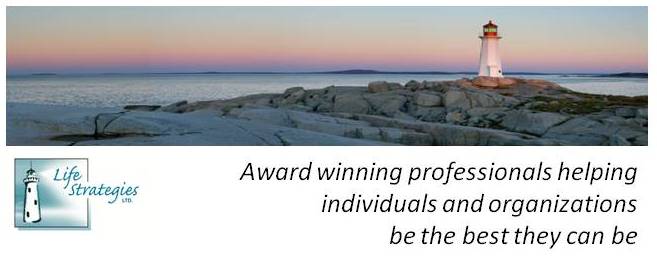
There’s a lot of talk about sustainable environments, economies, and resources. However, what about people and the places where they work? At least a dozen times each day I hear people say how busy they are…in many cases, they wear their busyness as a badge of honour.
The Context
I juggle many professional roles – as a counsellor, counsellor-educator, editor of an academic journal, co-executive coordinator of a professional association, and president of a consulting and training organization. In each arena of my professional life, I see the results of chronic busyness – clients, students, colleagues, board members, and corporate clients are scrambling to integrate their complex life roles, meet impossible deadlines, and do more with less.
Skilled worker shortages have resulted in worldwide recruitment, retention, and employee engagement challenges. Absenteeism is an epidemic within some organizations; within others, presenteeism (i.e., showing up for work but not doing much) is on the rise. Supervisory and management time is a precious commodity – they’re busy, too. That leaves an odd mix of workers – some bored with little access to mentors or development opportunities; others burned out from the chronic, relentless stress.
In future posts, I’ll further reflect on sustainability. I’ll be presenting on the topic at a conference in Buenos Aires next week (for more on our travels, click on “Where in the World…?”
The Context
I juggle many professional roles – as a counsellor, counsellor-educator, editor of an academic journal, co-executive coordinator of a professional association, and president of a consulting and training organization. In each arena of my professional life, I see the results of chronic busyness – clients, students, colleagues, board members, and corporate clients are scrambling to integrate their complex life roles, meet impossible deadlines, and do more with less.
Skilled worker shortages have resulted in worldwide recruitment, retention, and employee engagement challenges. Absenteeism is an epidemic within some organizations; within others, presenteeism (i.e., showing up for work but not doing much) is on the rise. Supervisory and management time is a precious commodity – they’re busy, too. That leaves an odd mix of workers – some bored with little access to mentors or development opportunities; others burned out from the chronic, relentless stress.
In future posts, I’ll further reflect on sustainability. I’ll be presenting on the topic at a conference in Buenos Aires next week (for more on our travels, click on “Where in the World…?”
September 20, 2008 IAEVG Conference, Buenos Aires
My presentation on Sustainability resonated with many…although the issues are different in some of the Latin American countries represented (just as they are in other regions of the world).However, in Uruguay, for example, the literacy rate is 98% and free access to university is available to many. The sustainability issue is jobs – not enough of them! Unlike in Canada, there are no visible Help Wanted signs…and there are lots of employees in every restaurant, hotel, and shop.
This was similar to our experience in China this summer. A presenter from Mexico spoke of a similar pattern – highly educated people but not enough jobs.
As we know in Canada, many well educated immigrants and migrant workers are underemployed – but earning more than they could “at home.” The sustainability issue, however, is the impact on families when parents leave children behind to take on temporary employment to pay the bills at home.
Also, as I learned from an Indian colleague at the International Symposium in Sydney, Australia in 2006, some of the off shoring solutions (e.g., international call centres in India) or lucrative opportunities abroad (e.g., Filipino nannies who were doctors at home) are leaving countries with damaged professional infrastructures (i.e., why train to be a doctor or lawyer if you can earn more in a call centre or as a nanny?).
Sustainability…of people and organizations…is a global concern. It is a complex issue, with a tangled web of interconnections. Finding a solution for one group seems to be creating new challenges for another…where do you see yourself fitting in?
In Canada, and other countries impacted by retiring baby-boomers and low birth rates, we are currently facing shortages of skilled workers and individuals/organizations scrambling to do more with less. It’s increasingly more difficult to encourage teens to stay in school, when work (and money) are readily available. Recruitment and retention issues are a crisis for many organizations and individuals are burning out or facing stress-related health challenges.




No comments:
Post a Comment